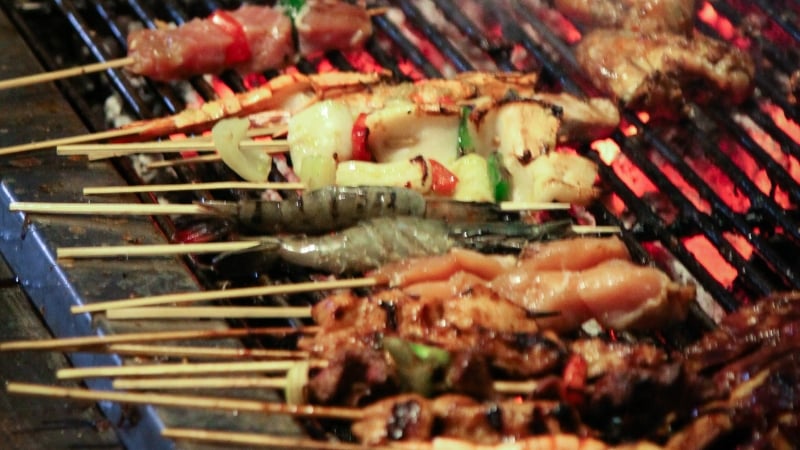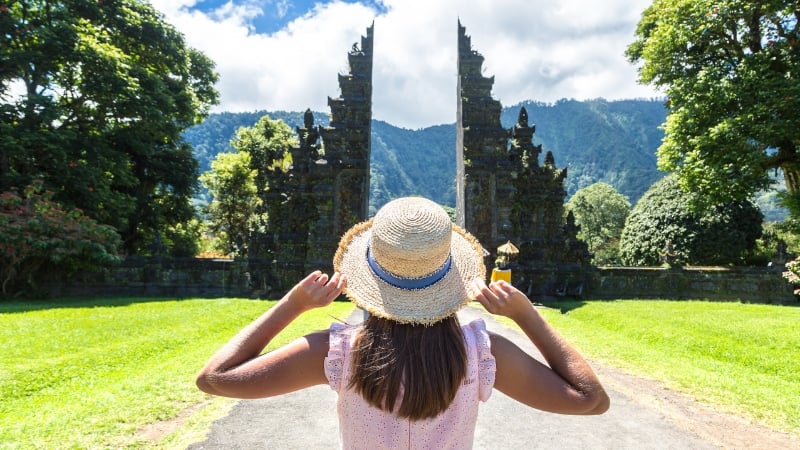Bali is a paradise for Singaporeans looking for sun, surf, and delicious food. However, there’s one pesky problem that can sour your vacation: Bali Belly. It’s that dreaded stomach upset caused by consuming contaminated food or water, and trust us, you don’t want it. But fear not! We’ve got you covered with everything you need to know to avoid Bali Belly and handle it like a pro if it strikes.
Also read: How to Get Around Bali for Singaporean First-Timers
What is Bali Belly?

Image credit: Prostock-Studio via Getty Images
So, what exactly is Bali Belly? Well, it’s a term used for traveller’s diarrhoea, usually caused by bacteria, viruses, or parasites that make their way into your system through contaminated food or water. The bacteria most likely to cause this unpleasantness include E. coli, Salmonella, and Shigella. And while you might hear it called different names in other parts of the world (Delhi Belly, Peru Poo, etc.), the symptoms are pretty much the same: stomach cramps, diarrhoea, vomiting, and general misery.
Why is Bali Belly So Common in Bali?

Image credit: Alena Ozerova via Canva Pro
While Bali is a popular spot for Singaporeans, it’s important to understand why Bali Belly is so common here. The water supply in Bali isn’t suitable for drinking, and food can be easily contaminated due to the tropical climate. With the high humidity, bacteria can grow at a faster rate than in cooler regions, which increases the risk of food-borne illnesses.
Even though you might be used to a certain level of hygiene in Singapore, in Bali, some food vendors and even restaurants might not follow the same food safety practices. As a result, consuming food that’s not stored or cooked properly can lead to Bali Belly.
Also read: The Bali Breakup Curse: Are Couples Who Visit Bali Doomed to Split?
How to Avoid Bali Belly in Bali
No one wants to waste their holiday lying in bed with a stomach ache, so here are some tips to avoid Bali Belly while you enjoy all that Bali has to offer:
Drink Bottled Water (And Avoid Tap Water)

Image credit: Mart Production via Pexels
The number one rule is to only drink bottled water. Bali’s tap water is not safe to drink, and even brushing your teeth with it can lead to trouble. Always use bottled water for drinking, brushing your teeth, and even washing your face. Stay away from ice unless you’re certain it was made from filtered water.
Watch What You Eat

Image credit: MelanieMaya via Getty Images Signature
- Street food can be a bit hit or miss in Bali. While it’s tempting to dive into delicious local treats, make sure the food is freshly cooked. Avoid any food that’s been sitting out for too long, like dishes at buffets or food that’s been left on display.
- Salads and leafy vegetables are a big no-no unless you’re sure they’ve been washed with purified water. It’s better to skip them altogether and stick to cooked food.
- Be cautious with seafood. While delicious, it can sometimes be undercooked, which may increase the risk of food poisoning.
Practice Good Hygiene
Frequent hand washing is your best defence! Wash your hands with soap and water before eating or handling food. Carry some hand sanitiser to use after touching public surfaces. Trust us, it can save you a lot of trouble down the line.
Eat Where It’s Busy
If you’re unsure about a food stall or restaurant, go where the locals go. Busy spots often have fresh food and good hygiene practices because they serve a high volume of customers. If you’re eating at a restaurant, make sure it looks clean and well-maintained.
Also read: Eat Pray Drink in Bali: A 5-Day Getaway with My Best Friend
How to Treat Bali Belly
Sometimes, no matter how cautious you are, Bali Belly can still strike. If you do end up feeling unwell, here are some tips to help manage your symptoms:
Stay Hydrated

Image credit: BraunS via Getty Images Signature
One of the most important things when dealing with Bali Belly is staying hydrated. Diarrhoea and vomiting can quickly lead to dehydration, so drink plenty of bottled water or electrolyte drinks like Gatorade or Pocari Sweat. These will help replenish the fluids and salts your body is losing.
Eat Light and Bland
Stick to bland foods that are easy on your stomach. The BRAT diet (bananas, rice, applesauce, and toast) is a good option to start with. Avoid spicy, greasy, or dairy-heavy foods until you’re feeling better.
Medications

Image credit: Alicja via Pixabay
If symptoms persist, you might need to take medication. Over-the-counter remedies like Imodium or Diapet can help with diarrhoea, while Panadol or Nurofen can ease any pain or fever. However, if your symptoms are severe, it’s always best to seek medical advice to rule out any serious conditions.
Natural Remedies
While not scientifically proven, some Singaporeans swear by natural remedies like coconut water to stay hydrated and raspberry cordial to ease stomach issues. If you’re in Bali, fresh coconut juice from the local vendors can give you a refreshing boost.
What to Do if Bali Belly Strikes
If Bali Belly does hit, don’t panic. It’s usually a short-lived condition that clears up within a couple of days. However, if symptoms last more than 4 days or get worse, it’s important to visit a doctor.
For severe cases, especially with prolonged vomiting or diarrhoea, dehydration can become serious, and you may need medical treatment. Bali has plenty of pharmacies and clinics where you can get rehydration solutions, medication, and advice.
Always Remember: Prevention is Key!

Image credit: Bloodua via Getty Images
While Bali Belly is a common issue for travellers, with a little preparation and common sense, you can significantly reduce your risk of getting it. Stick to bottled water, avoid questionable food, and keep up with good hygiene practices, and you’ll be able to enjoy your Bali holiday without any stomach trouble.
So, Singaporeans, now that you know how to dodge Bali Belly, get ready to explore Bali’s stunning beaches, temples, and vibrant culture: Stomach troubles don’t stand a chance!
Also read: How to Get from Bali to Lombok: Your Quick Guide to Island-Hopping Fun




